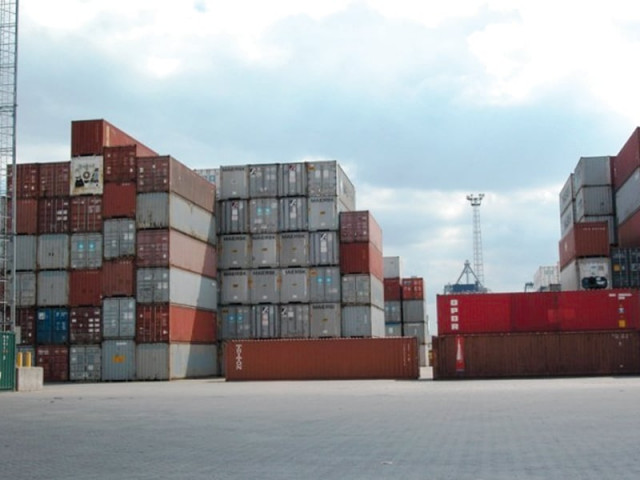Pakistan seeks long-term oil deal with Russia
Delegation from Islamabad to fly to Moscow on Oct 10 with pact also on agenda

Pakistan wants Russia to strike a long-term oil deal while remaining within the price cap at $60 per barrel and sources told The Express Tribune that a delegation from Islamabad is set to fly to Moscow on October 10 with the pact also on its agenda.
The sources added that Pakistan wanted Russia to set a benchmark of$ 60 dollars per barrel ‘free on board’ (FOB) – the actual price charged at port – to import crude oil on a long-term basis.
This means that Russia will also be bearing the freight cost for oil to be exported to Pakistan.
Earlier, Russia had shipped one cargo with 100,000 metric tons of crude oil that arrived Pakistan in one month. The freight cost for that oil was also paid by Russia. That ship was on a trial basis and the Pakistan Refinery Limited (PRL) processed that crude oil that was cheaper by $7 per barrel.
During recent talks with the Russian side, Pakistan had demanded higher discounts, but the former was not ready to give more than $8 per barrel. Now, the Pakistani side has chalked out a new formula that Russia should export crude oil at $60 per barrel price cap.
The US has already indicated that it would allow Pakistan to import crude oil from Russian but with a cap that was announced by G7 countries.
Read Russia delivers first batch of LPG to Pakistan
The EU, G7 countries and Australia had announced a price cap at $60 a barrel on Russian oil last December
The US and its allied countries felt that Russia was pumping its oil revenue in the war against Ukraine. However, they had announced a cap for Russian oil so that its supply to the world would not be disrupted. The price cap is aimed at curbing Russia’s finances to wage war against Ukraine.
However, after the Ukraine war, all countries, including the US, faced an inventory shortage of diesel. The US wants Pakistan and India to import Russian oil but at cap announced by the EU and G7 countries.
Now Pakistan will ask Russia to provide crude oil at the same price cap backed by US.
Pakistan and Russia had agreed to set up a Special Purpose Vehicle (SPV) with an objective to import crude oil from the latter. However, that SPV is yet to be set up, resulting in a delay in the long-term deal with Russia. Russia had also raised serious concerns over the seriousness of Pakistan entering a long-term crude oil deal.
The previous government had set up a committee to set up the SPV for oil trade with Russia at a time when it was about to complete its tenure. The Petroleum Division had also moved a summary to the Economic Coordination Committee (ECC) of the Cabinet to seek the approval for a long-term oil trade deal with Russia. The summary was submitted to the ECC without going into the details of the already imported Russian crude oil.
The ECC had turned down the plan of a long-term oil trade deal with Russian without any due diligence and keeping in view the recently imported crude oil by the PRL.
Read Oil, gas reserves to end in 15 years
Importing crude oil from Russia was like a gamble as no due diligence was carried out by the previous government for this purpose. However, it sheer luck that the PRL had made profit of $7 to $8 per barrel by importing crude oil from Russia.
Experts say that Pakistan can benefit from the Russian crude oil if it imported it regularly. However, both sides are still stuck on the issue of long-term discounts.
Russia has already announced that it would not sign a deal with those countries with a price cap announced by the EU and G7 countries. Furthermore, Russia is quoting ex-India rates on Platts -- a price benchmark service for the oil industry.
This means that Russian prices would vary with the price fluctuations on Platts and there were no permanent discounts offered by the country. At present, the PRL has imported 100,000 metric tons of crude oil from Russia. It was imported as a test case to examine the economics of the Russian oil.
Arabian oil produces 45% high speed diesel (HSD) and 25% furnace oil. However, Russian crude oil is said to produce 32% HSD and 50% furnace oil. Sources in the Petroleum Division said the PRL had been blending 50% Russian oil with the Arabian crude one being imported from the Gulf market.
Later, the PRL blended 35% Russian crude with 65% Arabian oil that resulted in producing low furnace oil.
Currently, there is a demand for furnace oil in the local market and that is why there has not been an issue. So the Pakistani refineries can use Russian oil by blending it with Arabian crude. Otherwise, there is no market of Russian oil in Pakistan because it contains a higher volume of furnace oil. Pakistan has also procured Urals grade oil directly from Russia.
The PRL has signed a contract for the supply of 100,000 tons of Urals grade oil which was loaded from a Russian port and offloaded at Oman port into two small shuttle vessels for onward delivery at Karachi port.
According to the plan, both shuttle vessels arrived at Karachi port and successfully delivered the cargo.
Government officials say that the import of Russian oil was part of the government's strategy to boost diplomatic relations with Moscow.
Pakistan has been relying on the Middle East for oil. Therefore, the import of Russian oil has opened an avenue for the country to import energy from diversified markets.
Pakistan’s refineries have already been facing problems in consuming furnace oil after the country’s power plants shifted towards LNG fuel.
They are also concerned about disposing of heavy volumes of furnace oil as the power sector has shifted to LNG.
Russia had offered Pakistan to receive payments in three currencies --UAE Dirham, Chinese Yuan, and its own Ruble. However, the two countries have agreed to make the payment in Rubles for the oil shipment from Russia.
Pakistan has opened letter of credits (LCs) in the Bank of Chine to make the payments because of its dollar shortage and a row between the US and Russia over Ukraine.



















COMMENTS
Comments are moderated and generally will be posted if they are on-topic and not abusive.
For more information, please see our Comments FAQ